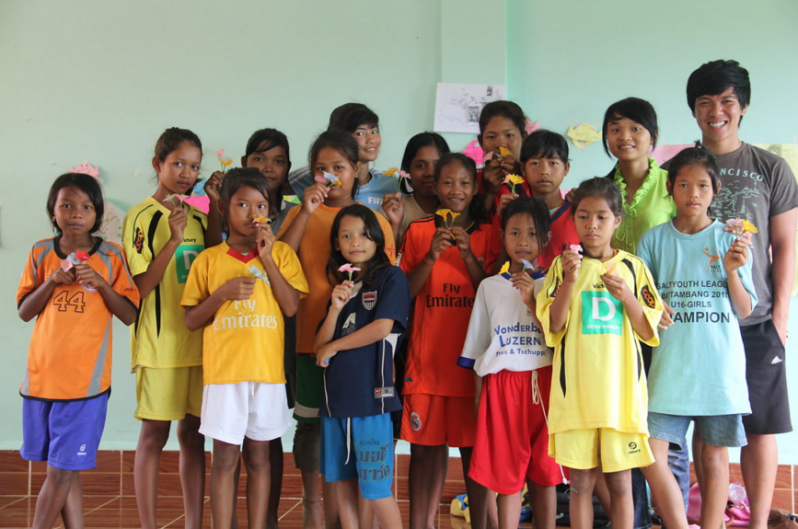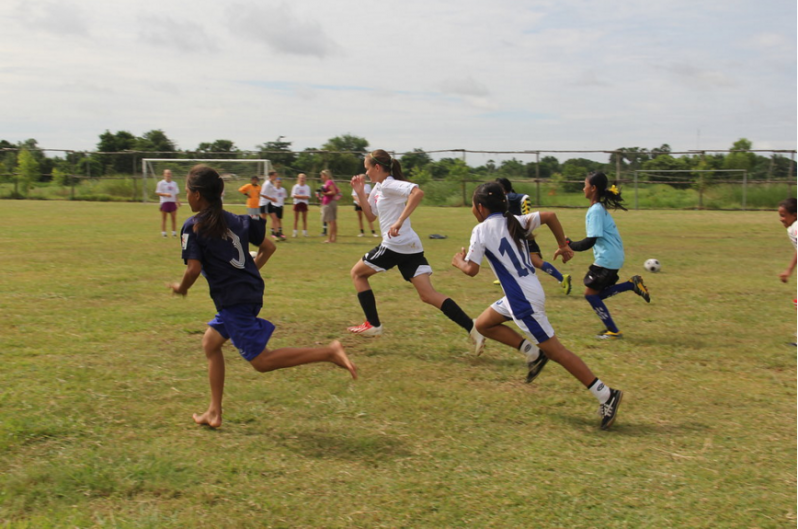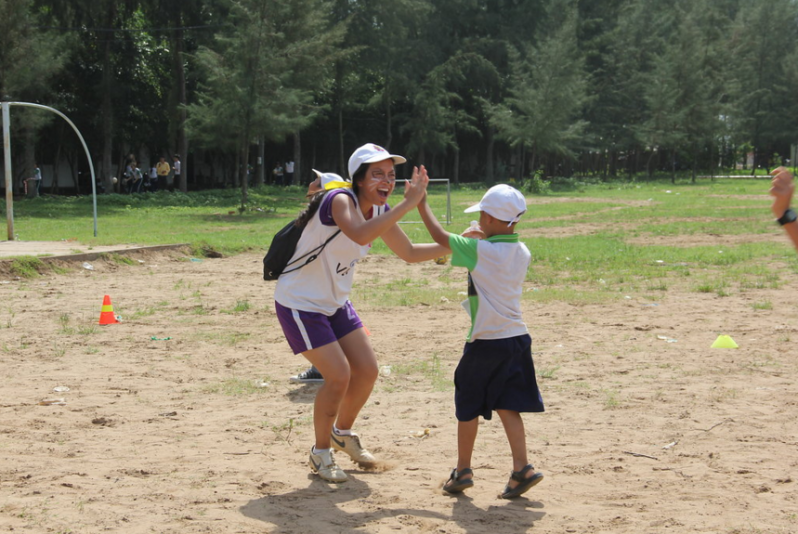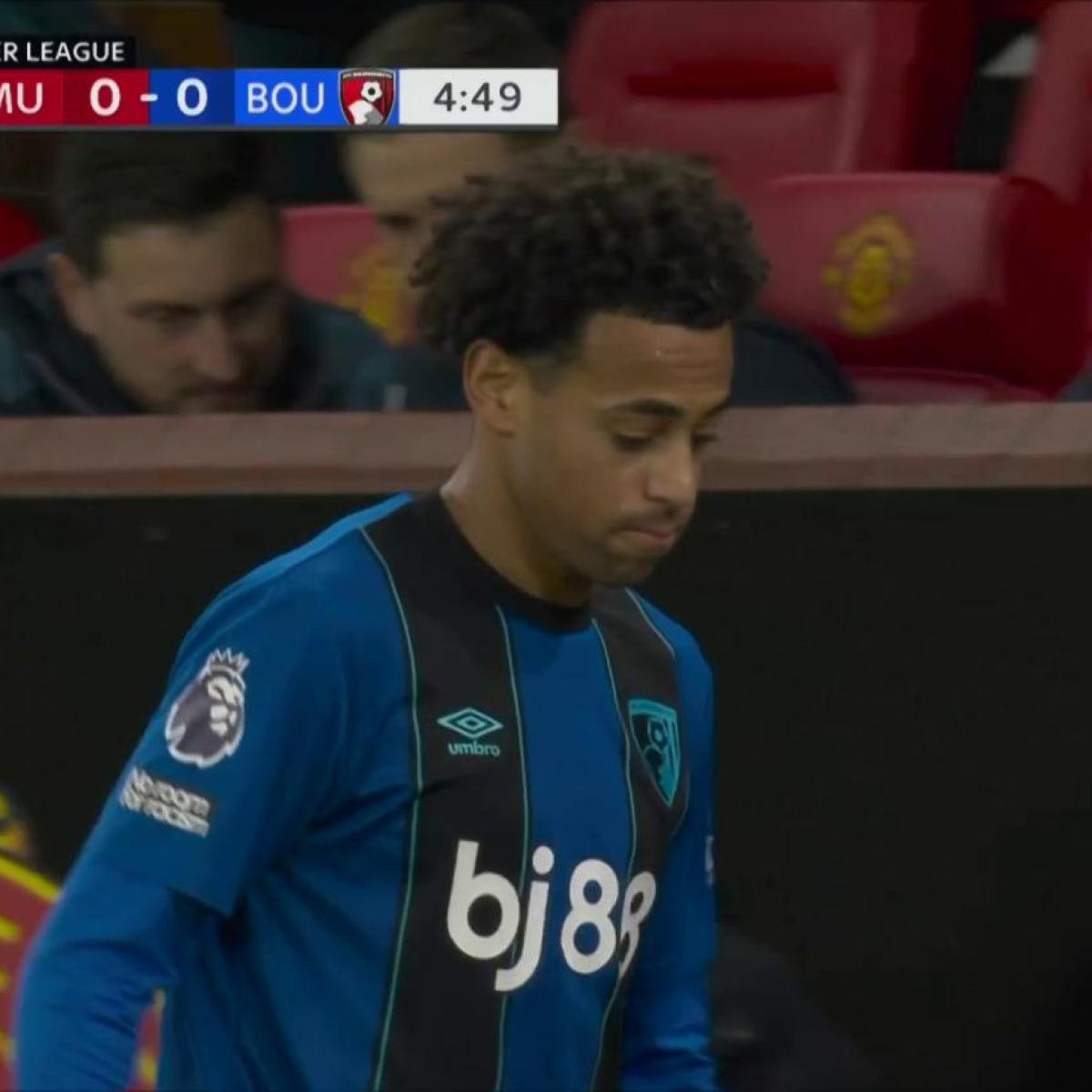We don’t have to tell you about the ways soccer makes a difference in people's lives. The world's game is consistently a catalyst for change. The18 has covered many initiatives using soccer this way, including Grassroots Soccer, Charity Ball, the World Football Project, and Pavegen.
Another program using soccer to change lives is Sports for Social Change in Southeast Asia. Supported by the organization's “VIA” (Volunteers in Asia) and Sarus Programs, Sports for Social Change is a three-week summer exchange program that uses soccer as a tool to discuss cross-cultural communication, peaceful conflict resolution, and women's role in sport.

Photo Courtesy of Sports for Social Change
The exchange program brings together 21 students from the United States, Cambodia and Vietnam to act as coaches and run two one-week camps that have the goal of community-building while encouraging young leaders. We spoke to the program manager for Vietnam, Abby Hills. She said that the program is built around soccer: “It’s a lofty idea, but it’s realistic,” said Hills, who woke at 5am to talk to us. “Sport is a way to bring together communities of people that would never come together otherwise.”
Organized sport is a rare commodity in Vietnam, especially for women, but Sports for Social Change gives Southeast Asia’s youth – as well as volunteers – an opportunity not only to hone their skills, but also to develop teamwork, conflict resolution and other social skills. Volunteers sign up for a three-week voyage where, in the first week, they go through round table discussions and seminars preparing different skill sets for the actual camp.
“We go through community building exercises, walk through drills that they can teach the campers and go through situations like if campers have conflicts with one another. That first week is just getting the volunteers up to speed,” Hills said. The main pillars for the volunteers to learn are:
1. Non-violent problem solving skills
2. Cross-cultural communication skills
3. Women’s empowerment through sport

Photo courtesy of Sports for Social Change
"Soccer serves as such a good platform to bring conversations up," Hills said. “We recruit people based on their interests. Soccer is a thing we all love and love to play, but how can we translate that into a community?”
The second and third weeks of the program are when volunteers actually interact with the youth of Vietnam and Cambodia, as they run one week-long camp in each location using the skills that they’ve been taught in the week preparation period.
The program started in 2013, but has slowly picked up steam. Despite the U.S. Department of State cutting their grant at the end of last year, they’ve grown to over 300 campers participating and have upped their volunteer applications from 15 to 40 this year. The program fee is $2,100 which includes lodging, local transportation, travel insurance and meals.
With the loss of the grant, however, the program has been forced to start grassroots fundraising to help cover volunteer transportation costs, visa fees, equipment and general day-to-day expenses such as renting fields, supplying food and providing insurance for all participants.

A volunteer in the program interacts with a camper. Photo courtesy of Sports for Social Change
This year, the program will run from June 15th through July 6th. Currently, Sports for Social Change is in the midst of trying to recruit more volunteers (generally university sophomores) to run camps.
You can apply to be a part of the program here – and if you want to donate to the cause you can do that here. You can also check out what the SFSC program has been up to by checking out their Facebook page.




